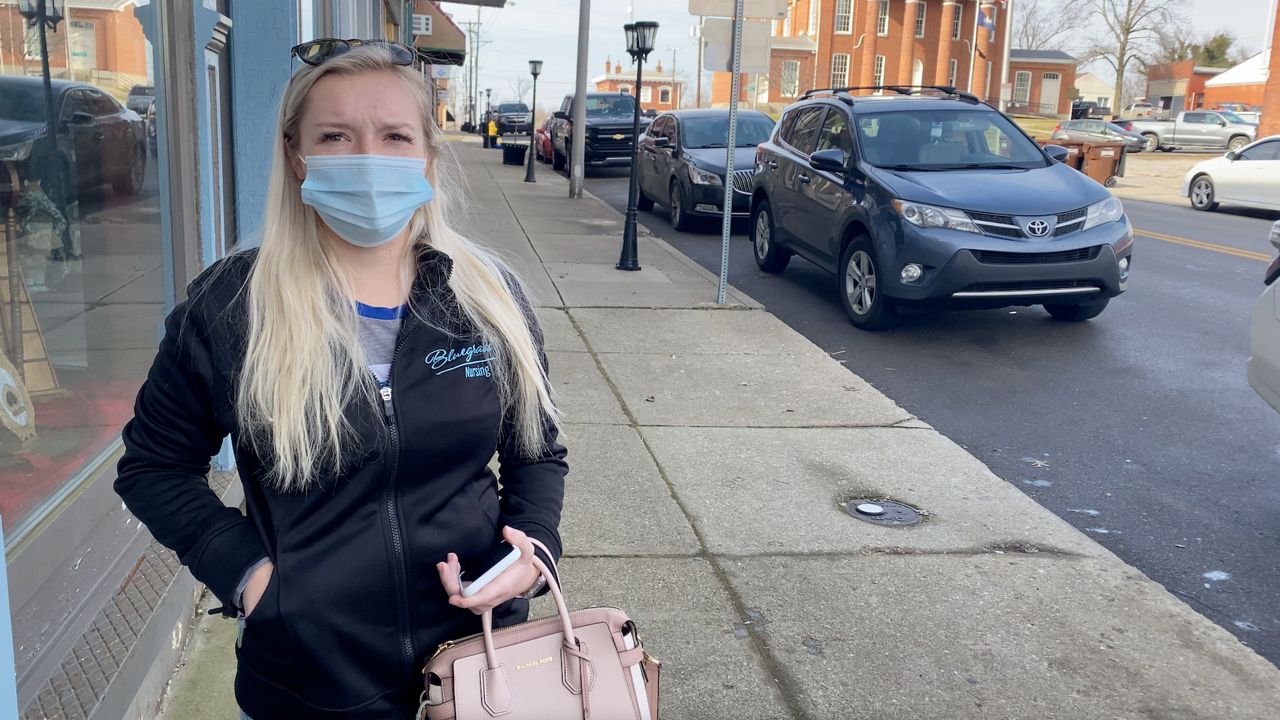OWENTON, Ky. – A study by the Rural Policy Research Institute’s Center for Rural Health Policy and Analysis revealed nearly one-third of rural counties across the country, including 18 in Kentucky, do not have a pharmacy partnered with a chain or network participating in the federal government’s vaccination rollout plan.
What You Need To Know
- Walgreens, CVS, Kroger, and Walmart have partnered with the federal government to administer COVID-19 vaccines to the public
- One-third of rural counties in America do not have a partner pharmacy
- Eighteen counties in Kentucky lack a partner pharmacy
- Health departments playing major role in rural counties' rollout plans
Partner pharmacies include Walgreens, CVS, Kroger, Walmart, and Rite-Aid, which comprise 60% of the nation’s pharmacies; 750 of the 1,962 rural counties in America do not have one. The combined population of those counties is 5.6 million, roughly 13 percent of rural residents nationwide, according to the study. The 18 counties in Kentucky without a partner pharmacy are Livingston, Lyon, Todd, Cumberland, Clinton, Owsley, Trimble, Owen, Robertson, Lewis. Fleming, Bath, Menifee, Elliott, Breckenridge, Ballard, Carlisle, and Hickman. Those counties account for 130,000 people in Kentucky ranging from the largest rural county (Breckenridge) having just more than 20,000 people to the smallest (Robertson) with around 2,100 people.
Most of the Kentucky counties without a partner pharmacy are getting help from a place that is rather familiar to residents in rural areas: the local health department.
Menifee County Judge-Executive Rick Stiltner and Bath County Judge-Executive Bobby C. Rogers both said they are working with Greg Brewer, director of the Gateway Health District that includes Menifee, Bath, Elliott, Morgan, and Rowan counties. Rogers said administering the Phase 1A vaccines was handled by the health department and he “hopes this is how it continues for Bath County,” adding he is currently trying to designate a property to be used for vaccine clinics locally.
Stiltner said Brewer is also working on Menifee County’s plan but noted that 56% of its nearly 6,500 residents work outside the county, which he said creates an opportunity for those people to get vaccinated at a partner pharmacy.
“I speak with our health director every day,” Stiltner said. “There has been a lot of changes and there are changes every day about how this is all going to roll out anyway. When we gave vaccines to the residents at our nursing home, Walgreens in Nicholasville came with a mobile unity and administered those, so something like that happening again is not out of the question – if they can do that for a nursing home, they can probably do that for the general public and just have people sit in their cars for observation.”
Owen County, about an hour northwest of Lexington, has a population hovering around 11,000 people, and elected officials there say not having a partner pharmacy will in no way hamper the ongoing plans to ensure every resident who wants a vaccine gets it.
“A situation like this shows the importance of our local health departments,” said Casey Ellis, who is serving his second term as the county’s judge-executive. “Not having a retail partner, to be quite honest with you in this situation, is actually a blessing because we have local control. We have our local folks that work at our local health department that take care of our local constituents.”
Owen County is part of the Three Rivers Health District along with Carroll, Gallatin, and Pendleton counties. Dr. Georgia Heise, the district’s health director, talked about some advantages of being a smaller, rural county.
“If somebody requests 101 doses, there’s no way to get that without getting 200 shipped to you,” she said. “So that’s been a little bit of an allocation problem from the state and federal levels, and it hurts the smaller ones because when the pharmacy companies that got the contracts at the federal level are allocating the vaccine or trying to make their arrangements to go to nursing homes, if it’s a small nursing home like in our rural communities, it’s tougher for them to do that, especially if they've got almost 1,000 doses, they need to give those. Transporting the vaccine is pretty tricky, too.”
Several polls, such as a recent one by the Kaiser Family Foundation, show smaller shares of rural residents say they will get a COVID-19 vaccine. Dr. Heise said she has not found that to be the case in Owen County and as one resident stated, she got the vaccine to protect others
Debbie Farrar is a nurse at a long-term care facility in Owen County. She has recovered from COVID-19 but chose to get the vaccine to protect her family and the residents she cares for at her job.

“I think it’s important to get it because this is new and everything that’s going on,” she said. “I got it because my sister had a liver transplant and we didn't want her to get sick. I think it’s important that we all just come together.”
Heise said administering the vaccine in a small, rural community through the local health department also helps convince those who may be hesitant.
“The judges and I and other leaders in the community are in constant contact about this kind of stuff,” she said. “The judges provided the health department with a list of all the first-responding agencies, their employees, their contact information, and that sort of stuff. We reached out to the senior citizens’ organizations and got lists of names and contact information. We already knew way before we got the vaccine who we were going to give it to, who we were going to contact, and who was willing to take it and who wasn’t.”
Ellis said all first responders and other essential workers in Owen County that wanted the vaccine have received it, with most of them getting the shot before Christmas.
Robertson County not only lacks a partner pharmacy but has the distinction of being the only county in Kentucky without a pharmacy at all. Robertson County Judge-Executive Stephanie Bogucki said she is using the county's existing partnership with the Buffalo Trace Health Department in neighboring Mason County and its director, Victor McKay, to ensure residents receive the vaccine.
“We do have a smaller health department in Robertson County in Mount Olivet,” McKay said. “We have just about knocked out one a Phase 1A and we’re going there to administer vaccines. We’ve agreed to do the schools and are expecting to do that later this month; if not next week, the week after. When vaccines are available we can move on to the 70-and-over and keep going. We have a mobile unit we can utilize and we’ve been offered the use of the volunteer fire departments in Robertson County. People can also schedule individual appointments at that health department when the vaccine becomes available to the public.”
A link posted on the Buffalo Trace Health District website allows people in Mason and Robertson counties to register to get the vaccine and be notified when it is available.
The first week of January recorded record levels of new coronavirus cases and deaths in rural America, according to USA Facts.



